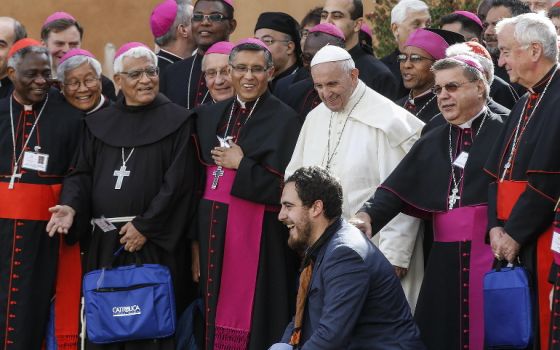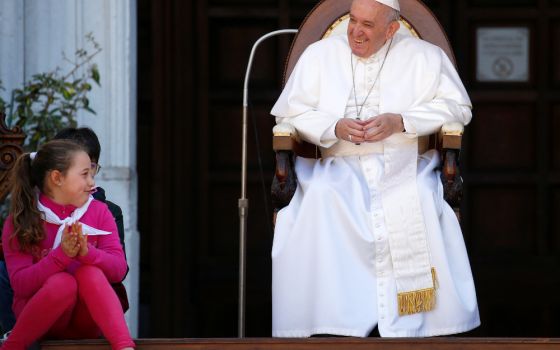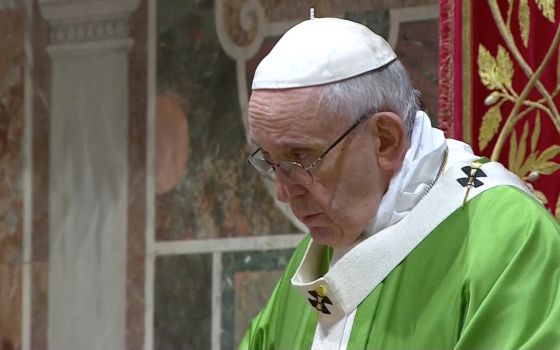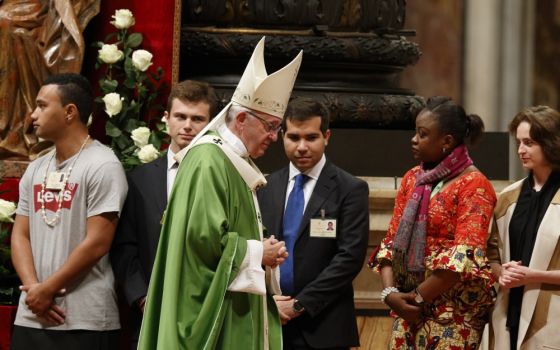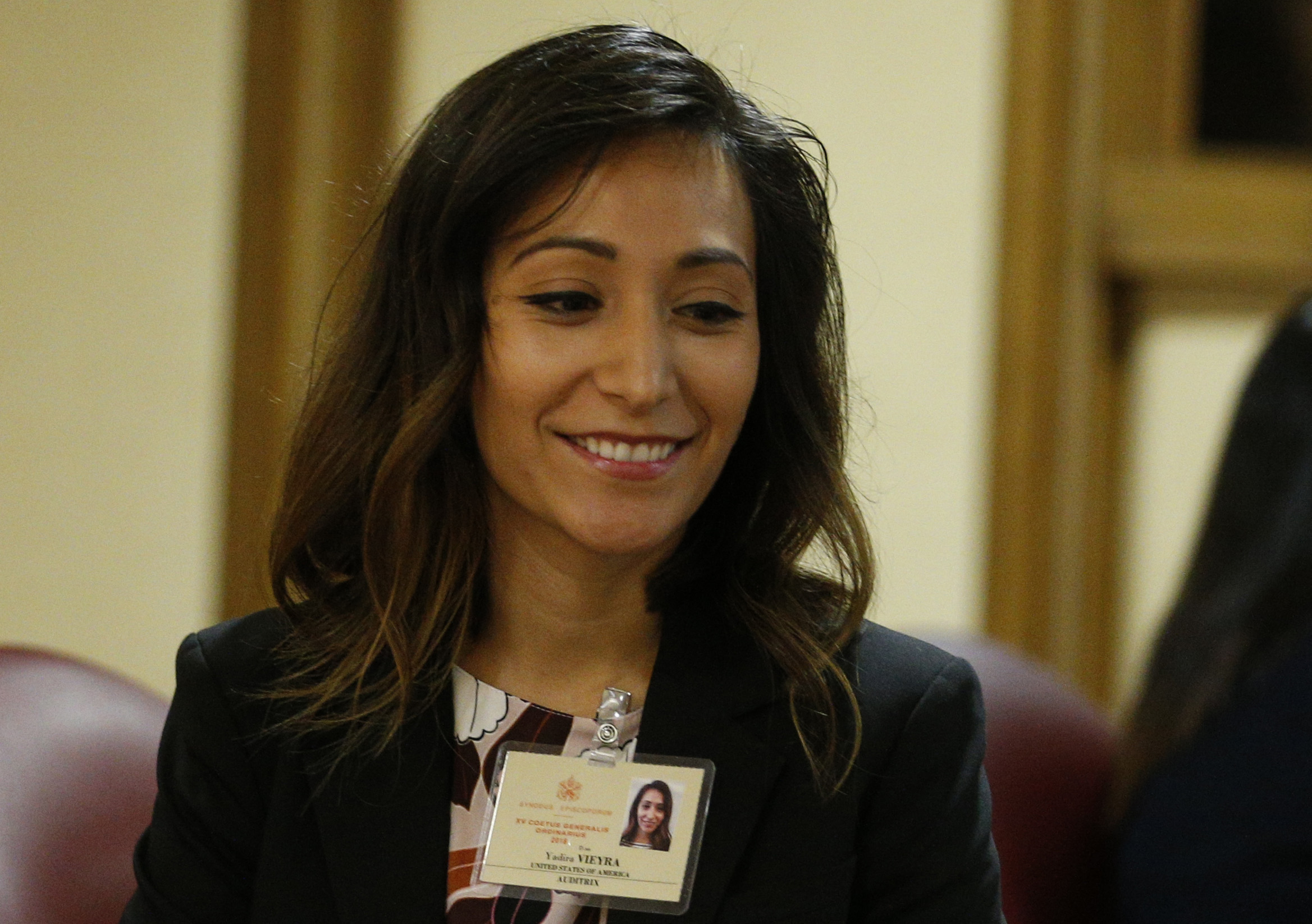
Yadira Vieyra, a synod delegate who works with migrant families in Chicago, attends a session of the Synod of Bishops on young people, the faith and vocational discernment at the Vatican Oct. 11. (CNS/Paul Haring)
One U.S. observer warned Pope Francis and the Synod of Bishops that the current immigration system in the United States "blatantly threatens" and disrespects the lives and dignity of migrants.
The church must step up and expand the ways it protects and cares for migrant youth and families or else young migrants will come to believe secular and political activist groups are the only ones helping them speak out against racism and push for change, Yadira Vieyra said.
The 29-year-old observer attending the synod on youth, faith and discernment is a specialist in child development and works in Chicago, helping migrant families.
She told synod participants Oct. 11 that "the global issue of migration is a humanitarian crisis today."
What she has witnessed in the United States is "how the hateful rhetoric and policies in my country are forcing families to experience sustained distress that warps the daily lives" of all migrants, whether they are unauthorized, legal or U.S. citizens from mixed status families.
She spoke about the Trump administration's actions in separating and detaining undocumented adults and children, even infants, and the impact it was having on families.
"Our current immigration regime has proven to be an institution that blatantly threatens and disregards the life and dignity of the migrant person," she said.
Advertisement
The church must take a more active role in promoting "pro-immigration policies that promote respect and strengthen the family unit, especially when distressed families are fleeing violence, poverty and, in some cases, terrorism," she said.
Many of these families are receiving psycho-social support from the church, she said, but they have other challenges the church can help with, such as the stigma of mental health and counseling, becoming more resilient and developing healthier responses to adversity.
For young migrants who are "already thirsting for acceptance," she said, "secularism and political activism appear to be the only avenues that grant our youth a voice against systemic racism and a clear pathway to change," she said.
"As a church that values life at every stage, we must listen attentively and sincerely to the stories of pain our migrant youth endure," she said, which means the church must also go to detention centers, U.S. borders and wherever "fear embraces" migrants and where their "safety and family unity are threatened."
Youth ministries, in particular, must become very creative and practical in how they can help young migrants before they become convinced "that political secularism values their lives more than our church," Vieyra said.
With Blessed Oscar Romero's upcoming canonization Oct. 14, she asked that the church find renewed inspiration in the new saint.
This "brave man" reminded people that the true home of the church is "not where she is comfortable and clean," she said, but "where she is uncomfortable, dirty and sweaty, relentlessly washing the feet of her most vulnerable children."



